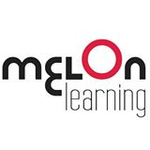Description

AlphaLearn

Learning Suite 360
Comprehensive Overview: AlphaLearn vs Learning Suite 360
As of my most recent training data, there seems to be no specific product or suite widely recognized as "AlphaLearn, Learning Suite 360". It's possible that this could be a fictional or niche product, a new release post-October 2023, or it might be known by another name in popular discourse or in a specialized sector.
However, I can provide a general framework on how learning management systems (LMS) similar to what you might be referencing are typically analyzed. Feel free to use these insights to apply to any specific product you’re investigating, or provide more details if this is meant to refer to an emerging or lesser-known brand.
General Overview of LMS Products
a) Primary Functions and Target Markets
-
Primary Functions:
- Content Management: Upload, organize, and manage training content and educational resources.
- Assessment and Evaluation Tools: Create quizzes, tests, and other assessment formats to gauge learner progress.
- Tracking and Reporting: Monitor learner progression and performance through analytics and reporting tools.
- Communication Tools: Enable interaction between learners and instructors through forums, messaging, or video conferencing.
- User Management: Facilitate user registration, access control, and role assignments.
-
Target Markets:
- Education Sector: Schools, colleges, and universities for managing coursework, resources, and evaluations.
- Corporate Sector: Organizations looking for employee training, compliance training, and skill development.
- Professional Training Centers: Institutions offering certification and professional development courses.
- Nonprofits and Government: Agencies requiring training programs for volunteers or staff.
b) Market Share and User Base
-
Market Share:
- Market share for LMS products is typically dominated by a few major players such as Blackboard, Moodle, and Canvas in Education, with others like TalentLMS and SAP Litmos being popular in the corporate sector.
- Market share is influenced by factors like geographical presence, product feature richness, user experience, and pricing.
-
User Base:
- The user base for these learning systems can range from small startups with a few hundred users to millions across large global organizations or schools.
- Established LMS platforms have extensive user bases due to their integration capabilities, scalable infrastructure, and brand reputation.
c) Key Differentiating Factors
- Customization: The ability to tailor the LMS to fit the specific needs of the organization or educational institution.
- Ease of Use: User interface and experience that facilitate easy navigation and administration for both learners and educators.
- Integration Capabilities: Compatibility with third-party applications and platforms such as CRM, ERP, or other business tools.
- Pricing Model: Some LMS offer subscription-based pricing, while others might use a per-user or perpetual license model.
- Support and Community: The availability of customer support and a community or network of users that can provide assistance and resources.
- Security Features: Data protection measures, privacy controls, and compliance with international standards and regulations.
If this is a recently launched or specialized product, consider visiting the official website or recent press releases for more accurate and current information. You might also look for professional reviews or user testimonials that could provide insights into their market stance and features.
Contact Info

Year founded :
2022
+9198198 00659
Not Available
Singapore
Not Available

Year founded :
Not Available
Not Available
Not Available
Not Available
Not Available
Feature Similarity Breakdown: AlphaLearn, Learning Suite 360
When comparing AlphaLearn and Learning Suite 360, it's important to understand the general landscape of learning management systems (LMS) to identify their core similarities and differences. Here's a feature similarity breakdown for these two platforms:
a) Core Features in Common
- Course Management: Both platforms generally offer robust tools for creating, managing, and organizing online courses and curricula.
- User Management: They include functionalities for enrolling students, assigning roles (such as admin, instructor, or learner), and tracking progress.
- Content Delivery: Both support multiple content formats, including text, video, quizzes, and interactive assessments.
- Communication Tools: They provide forums, chat features, email notifications, and other communication options to facilitate interaction between learners and instructors.
- Assessment and Feedback: Both systems typically support various forms of assessments, including quizzes, assignments, and peer reviews, as well as mechanisms for providing feedback.
- Analytics and Reporting: They offer analytics dashboards to track learner progress, completion rates, and overall performance data.
- Mobile Accessibility: Both platforms ensure that users can access courses and materials on mobile devices with responsive designs or dedicated apps.
b) User Interface Comparison
-
AlphaLearn: Known for its clean and intuitive design, AlphaLearn focuses on simplicity and user-friendliness, making it easy for new users to navigate through its features without extensive training.
-
Learning Suite 360: Often designed with a more comprehensive and modular approach, the interface might offer more customization options. It can be dense with features but might require a steeper learning curve initially.
c) Unique Features that Set One Product Apart
- AlphaLearn:
- AI-Based Personalization: AlphaLearn might offer advanced AI algorithms that personalize learning paths based on user interactions and performance.
- Integration Flexibility: It may provide a wide range of integration options with third-party tools and platforms to enhance functionality.
- Learning Suite 360:
- Virtual Classroom Capabilities: Learning Suite 360 might emphasize features supporting virtual classrooms, including real-time collaboration tools, breakout rooms, or live polling.
- Gamification Tools: Often, it might incorporate gamification elements, such as badges, leaderboards, and points to increase learner engagement.
- Extensive Enterprise Solutions: It may cater more extensively to large enterprises with features focused on compliance management, multilingual support, and global learning strategies.
In summary, while both AlphaLearn and Learning Suite 360 share many core LMS features, their differentiation often lies in user interface design, additional functionalities, and specific target audience capabilities. Users might choose between them based on factors like ease of use, specific feature needs, and the complexity of the learning environment they wish to manage.
Features

Not Available

Not Available
Best Fit Use Cases: AlphaLearn, Learning Suite 360
AlphaLearn and Learning Suite 360 are both comprehensive learning management systems (LMS) designed to meet various educational and corporate training needs. Here’s an overview of the best fit use cases for each:
AlphaLearn
a) For What Types of Businesses or Projects is AlphaLearn the Best Choice?
-
Small to Medium-Sized Enterprises (SMEs):
- AlphaLearn’s ease of use and cost-effectiveness make it ideal for SMEs looking to implement an efficient training platform without excessive investment.
-
Corporate Training Programs:
- Businesses focusing on employee development and compliance training can benefit from AlphaLearn's features like personalized learning paths and progress tracking.
-
Startups:
- Startups that need a scalable solution as they grow can utilize AlphaLearn’s cloud-based platform for onboarding and skill development.
-
Content-Creators and Trainers:
- Independent trainers and e-learning content creators can effectively use AlphaLearn to deliver and monetize their courses.
-
Customer Training for Product Companies:
- Companies looking to educate their customers on their products or services can leverage AlphaLearn to create interactive learning environments.
d) Catering to Different Industry Verticals or Company Sizes
-
Industry Verticals:
- AlphaLearn can be tailored to industries such as technology, healthcare, finance, and retail due to its flexible course creation and tracking features.
-
Company Sizes:
- Particularly suited for small and medium-sized companies, AlphaLearn offers a scalable approach that supports growth without complexity.
Learning Suite 360
b) In What Scenarios Would Learning Suite 360 be the Preferred Option?
-
Enterprise-Level Organizations:
- Learning Suite 360 is designed to handle the complexity and volume associated with large organizations, offering advanced analytics and integration capabilities.
-
Global Corporations:
- Its support for multiple languages and geographically dispersed teams makes it ideal for global companies needing consistent training delivery.
-
Regulatory Compliance Training:
- Industries with strict compliance requirements, such as pharmaceuticals and finance, benefit from Learning Suite 360's robust tracking and reporting tools.
-
Higher Education Institutions:
- Universities and colleges can use Learning Suite 360 for academic management, offering a comprehensive platform for online and blended learning.
-
Government Agencies:
- Agencies require secure and reliable LMS for training government employees and managing certifications and professional development.
d) Catering to Different Industry Verticals or Company Sizes
-
Industry Verticals:
- Tailored to complex industries like manufacturing, government, and healthcare where detailed analytics and integration with existing systems are crucial.
-
Company Sizes:
- Best suited for large enterprises and multinational corporations due to its extensive features and capacity to support thousands of users concurrently.
Summary
While AlphaLearn is a versatile and cost-effective option for SMEs and specific large organization needs, Learning Suite 360 caters to complex and large-scale environments with a focus on analytics and integration. Both solutions offer comprehensive support across various industries but cater to different scales of operation and complexity.
Pricing

Pricing Not Available

Pricing Not Available
Metrics History
Metrics History
Comparing undefined across companies
Conclusion & Final Verdict: AlphaLearn vs Learning Suite 360
Conclusion and Final Verdict: AlphaLearn vs Learning Suite 360
When evaluating AlphaLearn and Learning Suite 360, it is crucial to consider the overall value each product brings to its users. This analysis will encapsulate the strengths and weaknesses of both platforms and provide tailored recommendations for prospective users based on their needs.
a) Best Overall Value
Both AlphaLearn and Learning Suite 360 offer robust features tailored for different learning management needs. The best overall value depends heavily on the user's specific requirements:
-
AlphaLearn is likely the better value for small to medium-sized businesses and educational institutions seeking a cost-effective, user-friendly solution with essential LMS features. Its simplicity and focus on core functionalities make it an attractive option for those who prioritize ease of use over extensive customization.
-
Learning Suite 360, on the other hand, offers great value for enterprises needing a highly customizable, feature-rich platform. This suite is ideal for organizations that require advanced analytics, integration options, and support for complex learning paths.
b) Pros and Cons
AlphaLearn:
-
Pros:
- User-friendly interface, great for quick adoption.
- Cost-effective pricing, appealing to budget-conscious users.
- Solid support and training materials for onboarding.
- Reliable core LMS features, ensuring a focused learning experience.
-
Cons:
- Limited advanced customization and integrations.
- May lack some features needed for large-scale enterprise use.
- Upgrades and new features might come at a slower pace compared to competitors focusing on high-tech innovation.
Learning Suite 360:
-
Pros:
- Highly customizable, allowing for tailored user experiences.
- Comprehensive feature set, including detailed analytics, reporting, and integration capabilities.
- Scalable, making it suitable for large enterprises or institutions.
- Frequent updates and feature expansion, keeping it cutting-edge.
-
Cons:
- Higher cost, which might not be justified for smaller organizations.
- Steeper learning curve due to extensive features.
- Requires more resources for implementation and deployment.
c) Recommendations for Users
For users trying to decide between AlphaLearn and Learning Suite 360, consider the following recommendations:
- If your primary concern is budget without sacrificing core functionalities, and you favor simplicity and ease of use, AlphaLearn is a sensible choice.
- If your organization demands detailed reporting, sophisticated integrations, and scalability with the flexibility to customize extensively, Learning Suite 360 would be more suited to your needs.
- Conduct a thorough needs analysis, and if possible, opt for trial versions of both platforms to evaluate how well they meet your organizational or educational requirements.
- Involve stakeholders and potential users in the decision-making process to ensure the chosen platform aligns with user expectations and operational goals.
In conclusion, both platforms have unique strengths and serve different market segments effectively. Users should align their choice with their specific needs, budget constraints, and long-term learning and development goals.
Add to compare
Add similar companies



